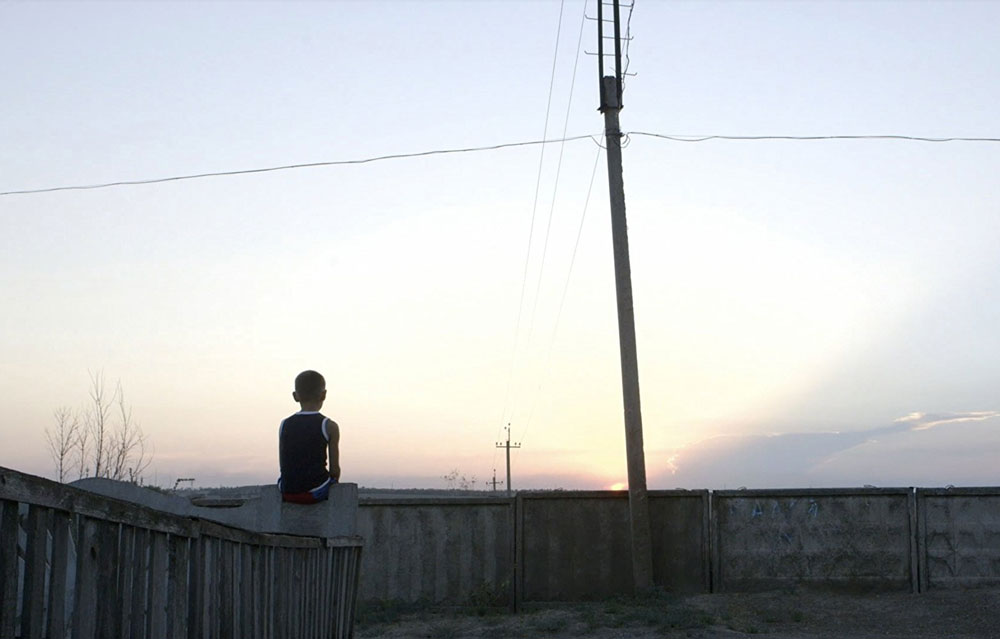Although “The Distant Barking of Dogs” introduces itself with the detonation of a bomb in urban Ukraine where the spectre of violence looms large in the wake of Russia’s annexation of Crimea in the spring of 2014, the echo of gunfire and mortar shelling can be heard in the woods of Hnutove, a rural community that sits to the east. Not populous to begin with, the village is largely deserted by the time filmmaker Simon Lereng Wilmont arrives to find Alexandra, a proud, sensible woman who shares her small parcel of land with 10-year old Oleg, her grandson who she takes care of since his mother has passed, and her daughter Alyona and her young son Yarik. Practicality has kept the family alive while living in such isolation, constantly chopping wood to keep their house warm and lining the basement with sheets so in the event of an attack above, the debris from glass jars won’t hit them while they sleep. Yet to live there in the first place has become more irrational by the day, though Alexandra justifies her reasoning with a saying that’s kicked around Hnutove for generations, “Every dog is a lion in its own home.”
Against all odds, Alexandra’s managed to keep the bullets away from the house, yet what’s remarkable about what Lereng Wilmont captures by spending a year in her company is the more pernicious ways in which the constant threat of violence has insinuated itself into the lives of her family with the likelihood that it’ll never leave. Given the size of Alexandra’s home, it’s particularly extraordinary that you never feel the presence of a camera as the filmmaker roams about inside, honing his lens in on Oleg, who knows of no other kind of life and will grow up accordingly. Alexandra’s presence is felt throughout, as the film creates seasonal interludes where she can register both a certain resignation to the family’s fate and a wistfulness that verges on the poetic as the weather changes, but the situation around her does not, but in following Oleg out and about in the vast, abandoned fields where bullet casings become playthings and at school where he learns to hold his breath with fellow students in underground bunkers where oxygen is limited, you come to understand Alexandra’s influence will only run so far and that in the absence of parental figures, he will be raised by fear.
The film’s crisp, clean imagery serves as an expression of the innocence being lost right in front of your eyes while editor Michael Aaglund is able to condense formative experiences down to their essence without ever feeling forced. This is equally true of the quiet, meticulous work done to show the relationship dynamics between Oleg and the few people he has around him, caught in a place where he forms close friendships with his younger cousin Yarik and an older teen named Kostya at an age when he can’t fully relate to either. Yet even in pointing towards a future where there’s no promise that things will improve and Oleg can be expected to grow colder, inured by everything he’s already experienced in all too short a time, there’s an invigorating sense of awe throughout “The Constant Barking of Dogs,” not only in how skillfully Lereng Wilmont extends the wonder with which the young Oleg approaches the world to become the audience’s, but as a celebration of resilience in seeing the family carrying on, resulting in an experience that no one involved will be able to shake any time soon.
“The Distant Barking of Dogs” will play at the Human Rights Watch Film Festival in New York on June 18th at 8:45 pm at the Film Society of Lincoln Center’s Elinor Bunin Monroe Film Center and June 19th at 7 pm at the IFC Center.




